ChatGPT launched by OpenAI in late November 2022 has caused quite a stir in the online world. It not only caught the attention of social media users, but also major media outlets.
This advanced AI technology can not only generate, rewrite and summarize text on command, but also interact with users. It remembers previous conversations, can even ask questions based on user input, and even write code and explain it to the user.
There are actually many other bots out there and in this article, I'm going to put together 8 ChatGPT alternatives.
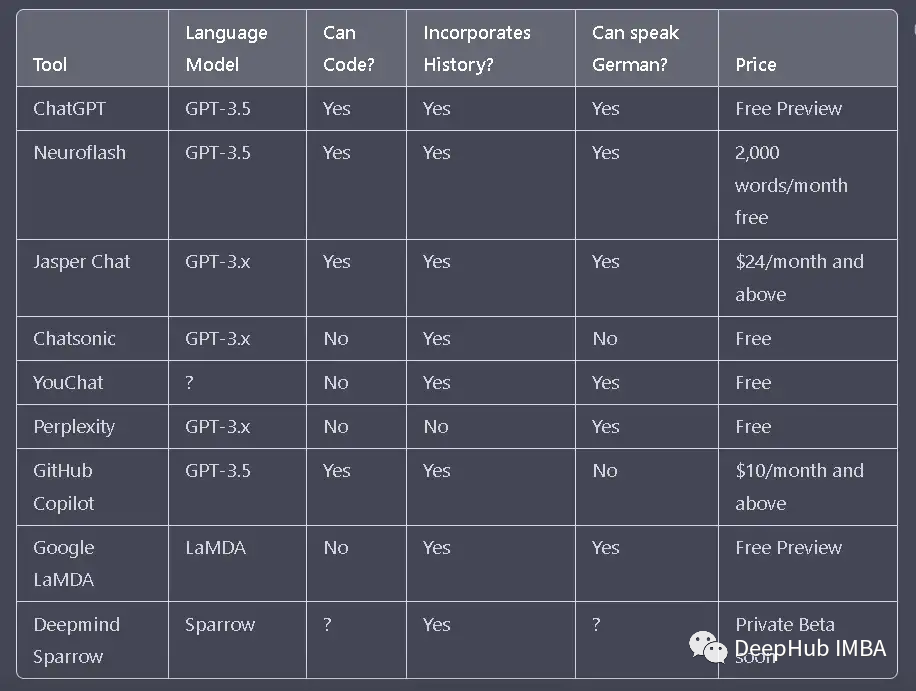
Neuroflash
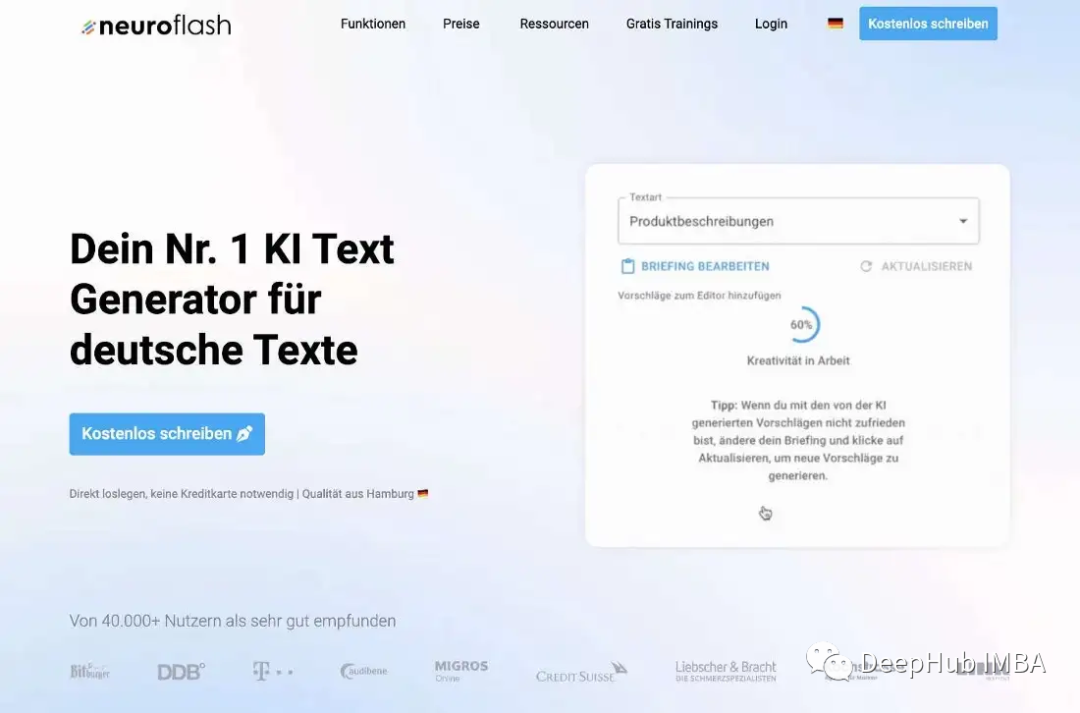
Neuroflash then primarily serves German content generators. Neuroflash's chat assistant built on GPT-3.5 is a great alternative to ChatGPT. Unlike ChatGPT and other similar tools, Neuroflash does not require a separate user interface - it can be easily accessed in a regular text editor, and like ChatGPT, Neuroflash can also write code. Sadly no syntax highlighting like ChatGPT
Jasper Chat
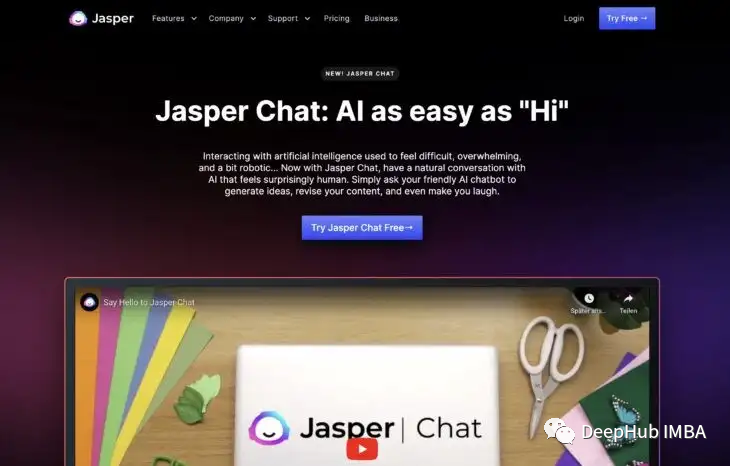
Jasper is one of the most popular text generators on the market today. Similar to Writesonic, Jasper responded very quickly to the ChatGPT release and released the Jasper Chat feature on December 20, 2022, about three weeks after the ChatGPT launch:
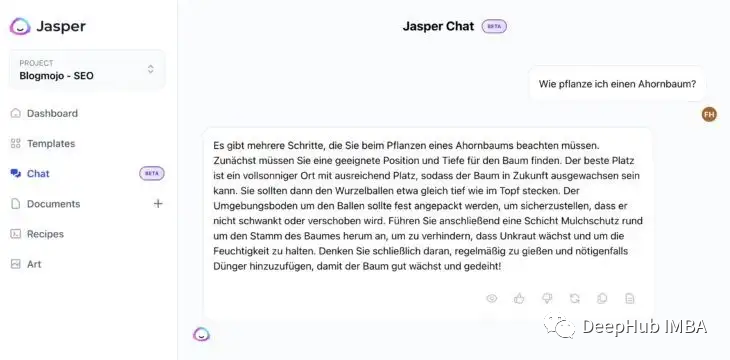
But Jasper Chat can't pull data from the internet yet, which is why the chatbot sometimes reproduces outdated information and can't provide the source.
Chatsonic (Writesonic)
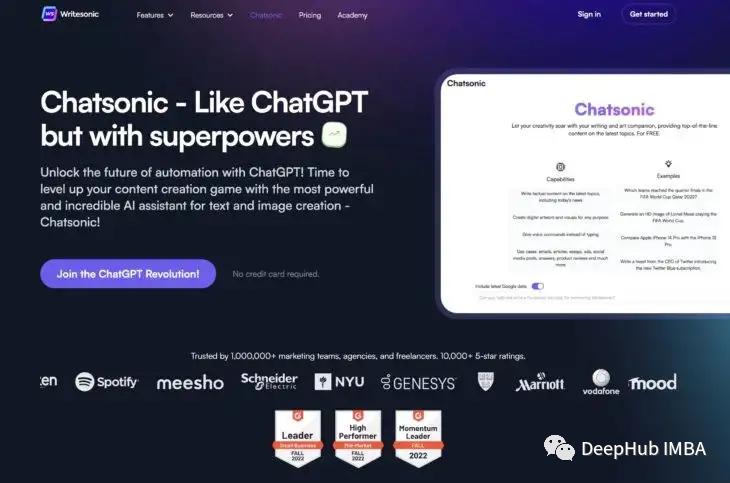
Chatsonic is a new feature from Writesonic, an AI text generator, and it's arguably the best alternative to ChatGPT for English text. The tool is currently still in beta, i.e. if the tool cannot process the input, no output will be generated.
Chatsonic also doesn't write code, but it has significant advantages over ChatGPT:
It provides an option to access current Google data, while ChatGPT answers are sometimes 1, 2 or 3 years old. For example when you ask about current events like World Cup 2022, you will get the correct answer from Chatsonic
YouChat
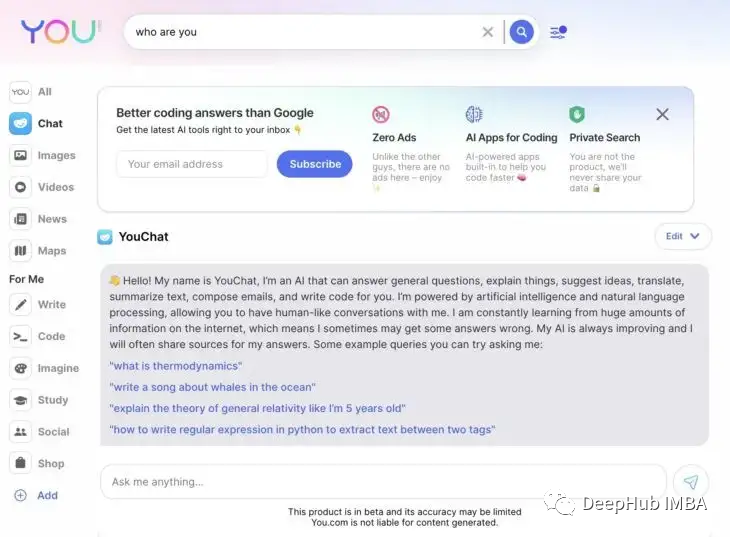
You.com was the first known (and public) search engine to integrate a chat assistant into its search results.
It is a great alternative to ChatGPT:
- It includes its own search index in the answers, so it can also answer questions about current events
- Include the source webpage in the answer, with footnote numbers
Perplexity AI
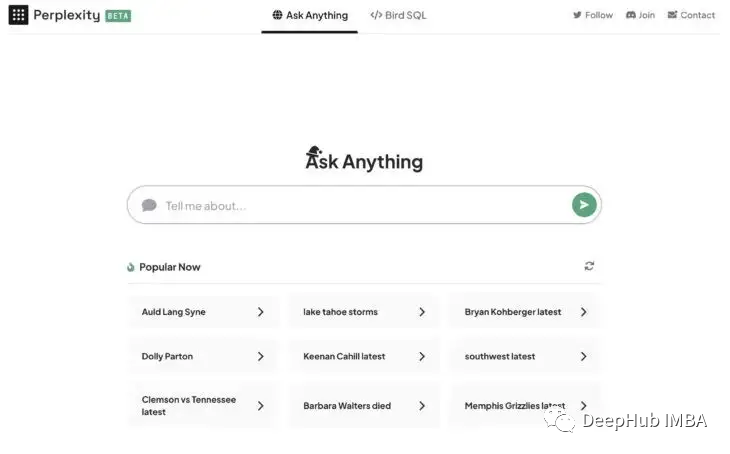
Perplexity is a search engine based on OpenAI API, but unlike ChatGPT, its answers not only include training data, but also content from the Internet.
Sources are cited in the answer as footnote numbers. All referenced web pages are displayed as search results as follows:
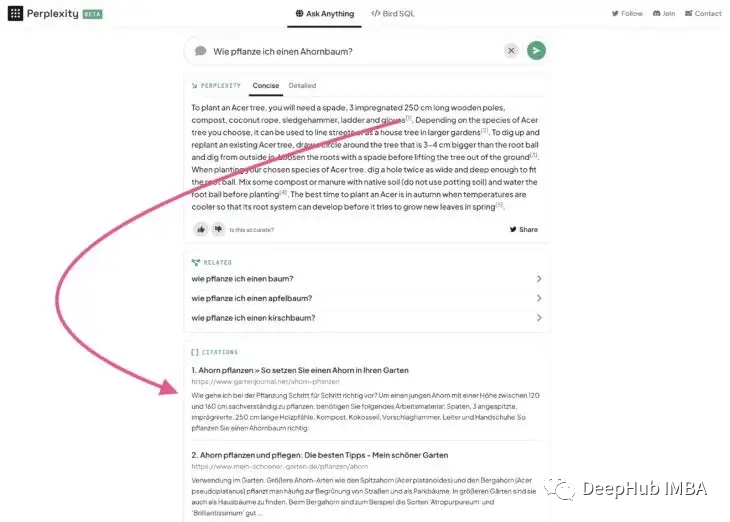
But his problem is similar to You.com's, in that the quality of the answers still varies.
But I think the hybrid display of search results and chat responses is leading the way. It's conceivable that a future Google or Bing might look like this, or at least something similar.
Perplexity is not a chatbot, but a search engine (or, more accurately, an answer engine) whose output does not include past questions or search terms.
Github Copilot
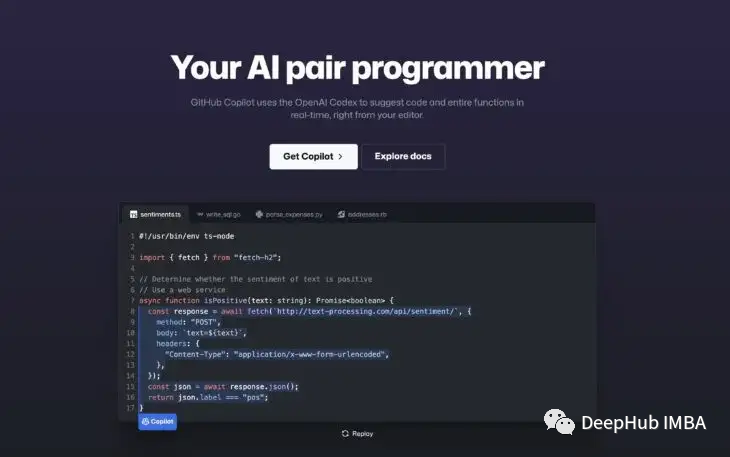
GitHub Copilot is the best alternative to ChatGPT if you just want to generate code instead of text.
Like ChatGPT, this tool is also based on the OpenAI API, but follows more programming-friendly rules:
It does not provide its own user interface or applications, but installs as extensions, including Neovim, JetBrains IDE, Visual Studio, and Visual Studio Code.
It can handle many different programming languages, including Python, JavaScript, TypeScript, Ruby, Go, C#, and C++.
Pricing for GitHub Copilot starts at $10 per month, and a 60-day trial is currently available. Although it costs money, it is still worth it.
Google LaMDA
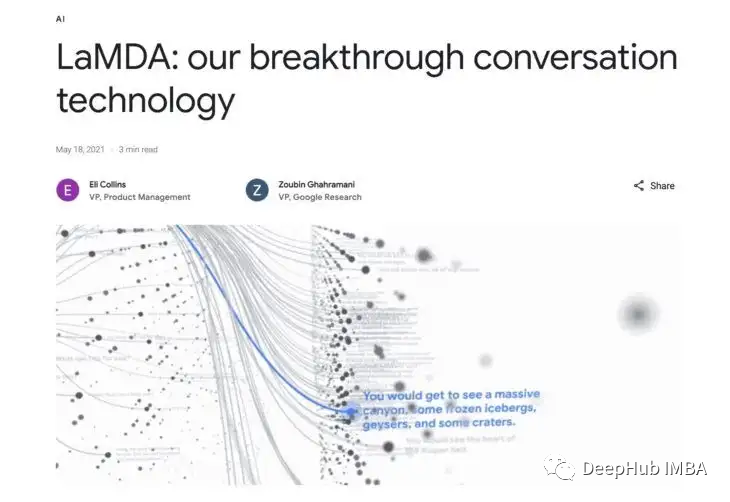
LaMDA (short for "Language Model for Conversational Applications") is a chat assistant, or more precisely a system for developing chat assistants, launched by Google in mid-2021. Similar to GPT-3, BERT, and ChatGPT, it is based on the Transformer architecture.
Unlike ChatGPT, LaMDa more actively participates in the conversation, asks questions, tells about itself, and responds to its input not only factually but also "emotionally".
Blake Lemoy, a software developer who worked on Google's "Responsible Artificial Intelligence" division in 2021, brought LaMDA into disrepute by being fired for publicly believing that it has a consciousness and a personality.
In May 2022, Google released LaMDA 2 at the Google I/O developer conference, bringing a number of new features. These include the "imagine it" mode, where LaMDA resonates with a given situation, or the "list it" mode, which allows LaMDA to be used to learn something.
But unlike YouChat, Google decided to limit LaMDA's release. That's because the technology can convey racism, sexism, anti-Semitism, and other forms of bias or misinformation in the text used to train language models, and (much like ChatGPT) doesn't always stick to the facts. Therefore, the technology is further evaluated and developed according to strict criteria of "Quality, Safety and Landing".
However, it is conceivable that since the release of ChatGPT, Google will definitely accelerate the development of LaMDA.
We can test LaMDA (some features) for free using the AI Test Kitchen app. Currently only available to those from the United States.
Sparrow
In September 2022, Google subsidiary Deepmind launched an AI chatbot called Sparrow. According to Deepmind, Sparrow is an experimental model and proof of concept that will help make chatbots more useful, accurate, and safe.
Similar to ChatGPT, it is trained using reinforcement learning (RL), which means real people provide feedback on Sparrow's output:
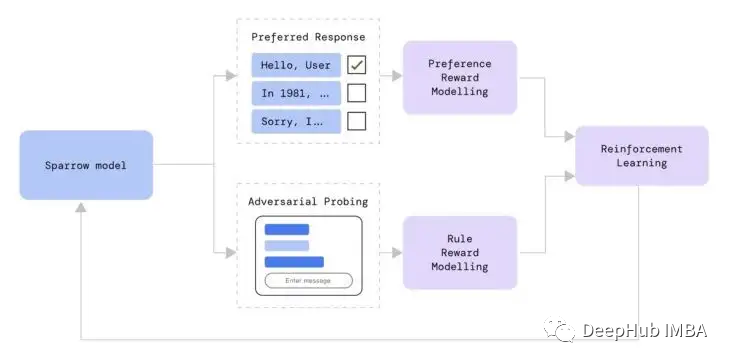
Sparrow used a Google search to find suitable sources. Exactly how AI does this, and how it chooses the right search result for an answer, can be read in the associated research paper.
According to Deepmind CEO Demis Hassabis, a private beta of Sparrow will be released later this year.
alternative model
ChatGPT uses GPT-3.5 and consists of three language models code-davinci-002, text-davinci-002 and text-davinci-003.
However, the following language models (LLMs) can be considered for AI chatbot development:
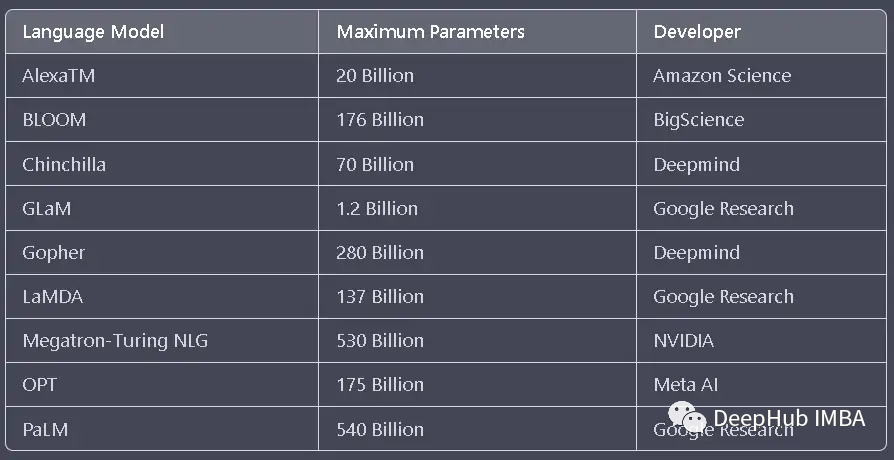
Hope this article helps you
https://avoid.overfit.cn/post/c5b24fe729424dc3a10fed92d0f5fce5
By Daniel Peric